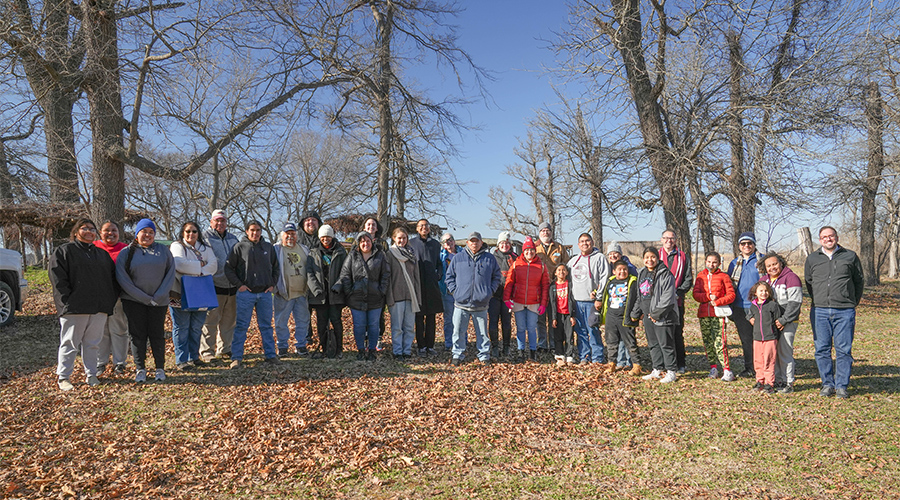Native and Indigenous Spirituality

Mekko Chebon Kernell welcomed students, staff, and faculty from the Emory Indigenous Language Path Working Group in March 2022 for a visit, conversation and lunch at the Hvlvpe Ceremonial Grounds in Hanna, Oklahoma.
Emory University Land Acknowledgement
Emory University acknowledges the Muscogee (Creek) people who lived, worked, produced knowledge on, and nurtured the land where Emory’s Oxford and Atlanta campuses are now located. In 1821, fifteen years before Emory’s founding, the Muscogee were forced to relinquish this land. We recognize the sustained oppression, land dispossession, and involuntary removals of the Muscogee and Cherokee peoples from Georgia and the Southeast. Emory seeks to honor the Muscogee Nation and other Indigenous caretakers of this land by humbly seeking knowledge of their histories and committing to respectful stewardship of the land. (Emory University Board of Trustees, September 2021)
Emory OSRL Commitments
The Emory University Office of Spiritual and Religious Life (OSRL) seeks to stand in solidarity with the Native People of this land and to build relationships with the descendants of these peoples and support their spirituality and wellbeing. To that end, a number of resources are listed below. Emory OSRL seeks to build education about and allyship with these peoples into our work. With others at Emory University, we celebrate Indigenous Peoples' Day and Native American Heritage Month as part of a year-round commitment to these efforts. For more information, please contact: religiouslife@emory.edu.